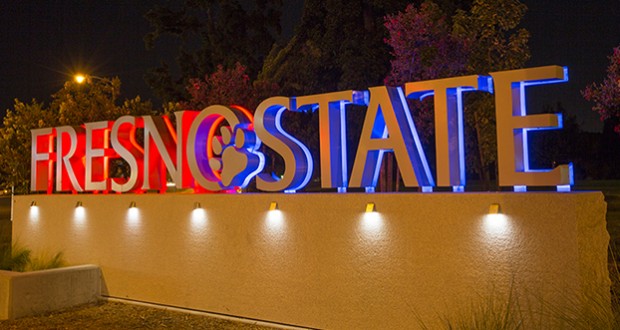A discussion entitled “Discussing Whiteness” was hosted by Fresno State’s Cross Cultural and Gender Center on Feb. 3 in a bid to create an open dialogue about the origin, what it means to be white and how to be a social justice activist.
“It’s a series of discussion groups that I’m going to host on the topic,” Jessica Adams, coordinator of gener programs and services, said. “It’s a space for people to come together to learn what is whiteness, what is a white identity, how does anti-racist work fit in with the white identity. And specifically, how can white people move forward in working against racism and working for social justice.”
This event was not the only of its kind. Adams said, “Working at the CCGC, we do events based on race all the time.”
Adams is a graduate student at the university whose main area of research focuses on race, specifically whiteness in student affairs.
Because of the national political climate, Adams said she found it important to have these discussions. She said she often comes across white students who are “looking for direction” and who are also looking to be a part of social activism and social justice.
Adams hope the discussion helps white people in the community to get more comfortable getting involved in social justice.
The potential of being scared and not knowing how they fit in are some reasons why Adams said white people may be hesitant to get involved.
Topics discussed at the event were: the difference between diversity and social justice; white culture; when was the first time you saw yourself as white; systeming issues; and redlining.
The emotions Adams felt during the discussion were “thankfulness” and “gratefulness,” especially for having the space to discuss such issues.
The majority of the event’s attendees were people of color, but Adams does not want that to deter others from coming to the event. The event is meant for people of all backgrounds to have a healthy discussion on race.
Although the event was coming from a place of educational enlightenment, some people did not view it positively.
Adams received an email days before the event that expressed disdain for the event, but first called out Adams for being a “disgusting racist worthless human [you] should be ashamed of yourself.”
The email ended with the person saying he will be seeing Adams at CCGC “along with many others.”
Adams’ response? She informed authorities.
“It makes me nervous, but it’s expected. As you can see nationally, it’s very standard when white people who want to keep the status quo and don’t want things to change,” she said. “They are invested in keeping white people in power. If they sense that you’re going to talk about whiteness being power, they get very afraid. For me that’s where that comes from. It’s racist.”
Adams added the next discussions will be on white fragility, privilege, the idea of a white savior and how to talk to others about whiteness.
“Just come,” Adams said to those who are hesitant to join the discussion. “Everybody is welcome as long your goal is moving forward with social justice and you’re invested in equality and society.”
Media is not allowed to attend the event to protect the integrity of the event by allowing a free-flowing conversation without the worry of being recorded.
Adams said, “It’s more important for me that they are talking than [receiving] media coverage.”
Jemimah Barba, an English and anthropology major, said it was important for her to attend the event because the subject is not something that’s discussed enough.
Barba said discussing the topic in a university environment is important because scholarly references can be utilized.
“We can talk about it with people that are studying this,” Barba added.
During the discussion, Barba said questions were raised that are not common in everyday, casual conversations.
“How are we relating the history, which would be so ambiguous it would seem like to this very political, socioeconomic level. How are we defining that word and using it to counteract all the things that are happening.”
Barba ponders the question of how can the knowledge of whiteness be used as a tool to “really break down what’s going on.”
She said as a person of color, it is important to her to learn more about the subject.
“I know my identity, and I’m still learning about it, but it’s also important for me to hear other people’s questions because I have white friends, and it’s good to know the questions they have,” Barba said.
Sophie Karas, graduate student in education, said she felt “safe, welcoming, supportive” during the discussion.
The biggest takeaway from the discussion, Karas said, was learning, “There are multiple white identities, and in order to create social change, we must focus on changing our systems.”
Karas encourages others to attend future discussions to be able to educate others on what whiteness is, have a healthy white identity and to be an advocate for others.
The discussions will take place the first and third Fridays of every month from noon to 1:30 p.m. in the CCGC.
Prior to the discussions, Adams sends readings via email that will be discussed. To be added to the email list, contact Adams at [email protected].





Sheik Yerbouti • Feb 7, 2017 at 6:37 am
Just saying things like “whiteness” or “white fragility” or “white privilege” is racist. The hate is so obvious and yet, somehow, it’s the “good” kind of hate. Get a clue folks, if you hate people for just being white, you’re a racist, a common, stupid racist. It’s that simple.